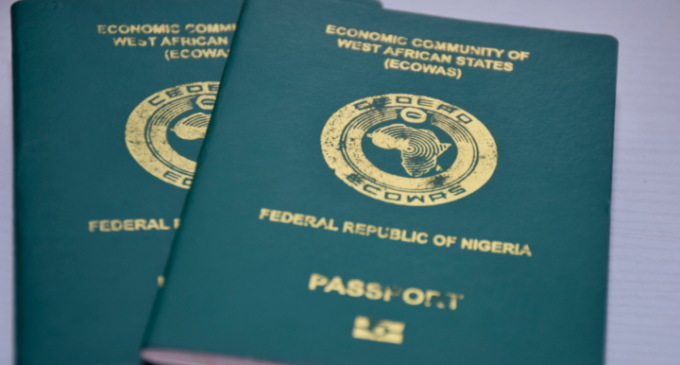The Minister of Interior, Olubunmi Tunji-Ojo reveals the Nigeria Immigration Service (NIS) has cleared about 60,000 passport backlogs in four days.
The minister spoke on Tuesday when Betta Edu, minister of humanitarian affairs and poverty alleviation, paid him a courtesy visit in his office in Abuja, adding that the number was out of the over 200,000 pending passport applications.
GOVIMA had reported that the minister had directed the NIS to ensure the clearance of all pending passport applications within two weeks.
According to a statement by Alao Babatunde, his special adviser on media and publicity, Tunji-Ojo said he would clean up the passport crisis in the country.
“When we came on board, the passport crisis was an embarrassment to the country and we said there is no way it can continue,” he said.
“As at this morning, I can tell you that about 60,000 passport backlogs have been cleared, specifically, 59,906.
“On Sept. 6, when I gave the 2-week ultimatum, we had over 200,000 backlogs. However, we have recorded tremendous progress, and I still maintain my words, those backlogs must be cleared.”
On her part, Edu said her visit was informed by the need for the two ministries to collaborate in reducing human trafficking.
She added that the collaboration would also include other related challenges such as the poor welfare of veterans, underemployment and poverty reduction.
Edu said the interior ministry is in the best position to solve issues of human trafficking as it plays a supervisory role in the service.
Responding to her, Tunji-Ojo said the interior ministry welcomes such an initiative as it is in line with President Bola Tinubu’s “Renewed Hope Agenda”.
He commended Edu for the concept and assured her of his support.
“There is a lot of work to be done and we cannot work in silos as the President has directed,” Tunji-Ojo said.
“We are not just working on humanitarian endeavours such as human trafficking, NIS must help us change the story completely.
“We may only have to expand it to include the welfare of inmates in our correctional centres as they are Nigerians as well.
“Let’s see how they can benefit from your welfare packages. Of course, there is a lot we can achieve together.”



